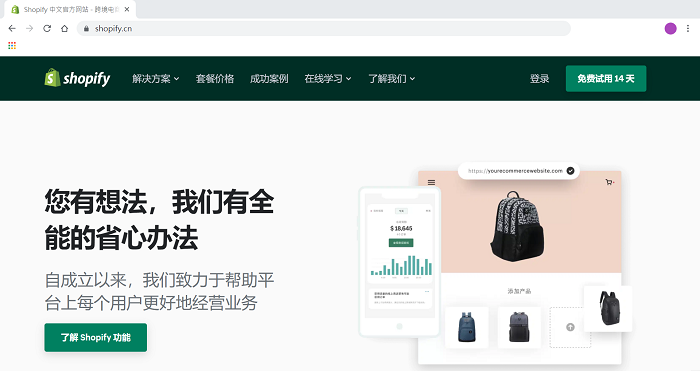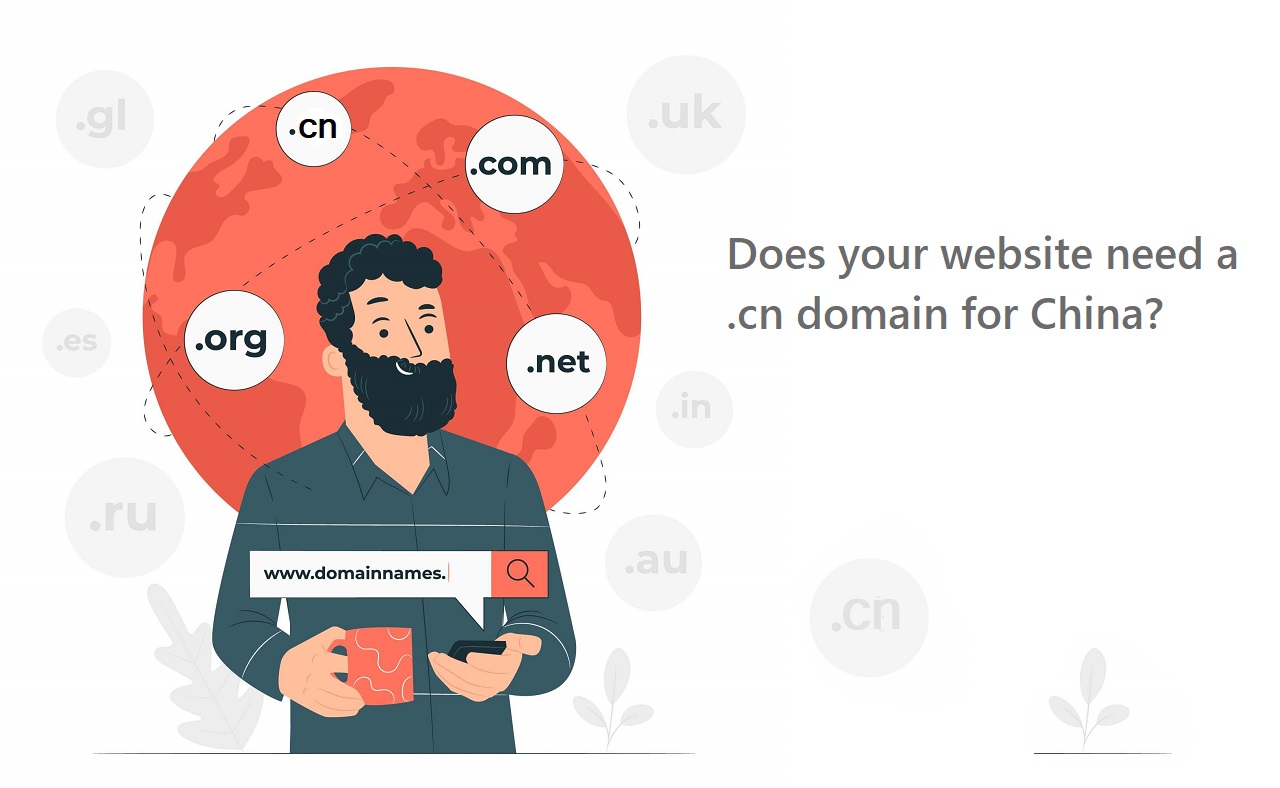If you are starting a business in China, how would you know if it is better to use a .com or .cn top-level domain (TLD)? Are there censorship issues that your business must consider before choosing a TLD? Does a .cn TLD guarantee the best results for Baidu search rankings?
A domain name is comprised of three parts. These are the optional sub-domain, the domain name, and the top-level domain. For example, in the website address https://www.goclickchina.com, there are three parts of the domain address:
- www - This is an optional sub-domain, which can be removed in some cases and would still render your website accessible
- goclickchina - This is the domain name, which usually corresponds to your website’s name
- .com - This is the top-level domain name, which can vary. Some other examples may be .org, .net, or when in China, .cn
.com is actually short for “commercial” and other popular TLDs have their own unique meanings such as .org refers to an organization, .net to network, and .cn to China.
.cn is an example of a country code TLD (ccTLD). In China, businesses usually choose between .com and .cn for their website’s TLD.
.cn vs .com--which is better for Baidu?
Choosing a ccTLD is ideal if your business is exclusively targeting a local market or country. The TLD can signal to a search engine, assuming that the search engine has worldwide reach, that you are trying to rank highly in its local version.
Since Google is not accessible in China, this might make little to no difference in signaling which market you want to reach. Therefore, choosing between a .cn and .com really boils down to making a business decision. However, a .cn website can add a little prestige to your website. Since the government has strict regulations for approving a .cn domain, it can make your business even more appealing.
Baidu, which is China’s equivalent of Google search, does not depend on TLDs alone to rank your website or ensure that your website will not be flagged by the authorities. Instead, it is the content of your website that is most important, which is also the main basis of SEO. While a ccTLD may signal that your website is localized, it does not really provide a lot of contexts for you to have a high search ranking if your content--text and graphics—does not correspond to the search results you are targeting.
Reasons why retail businesses like Shopify use .cn

Some big businesses in China, such as Shopify, use .cn because they want to clearly designate their site for a location. This means their local sites in countries such as Canada and the Philippines, for example, use a .ca and .ph respectively, instead of a .com. This practice is quite common among global retail brands.
This also serves a purpose for big international search engines such as Google or Yahoo. It could be part of their search engine optimization efforts to signal to an international search engine the appropriate location for their rankings.
Another reason why Shopify uses ccTLD is to automate language options, which is also a common feature of retail websites. By using a ccTLD, users can quickly revert to a website language they prefer.
Why do other businesses use .com for China?
Most businesses pick .com as a TLD because of its popularity. A .com TLD also has more international appeal, so if your business in China is something you would like to expand into other countries, a .com TLD might be something to consider.
It is important to know that a .com website would not make your website less likely to be approved. Ultimately, Chinese authorities will review your website as a whole and scan its content for inappropriate material. Search engine optimization hardly depends on the TLDs alone when it comes to China’s digital market.
Also, Chinese users are not partial to either .cn or .com websites. They are more concerned about whether your website meets their needs. Additionally, if you are a retail business, consumers care if you are a one-stop shop like WeChat, JD, and Alibaba, to name a few.
Again, this is a decision that depends on your specific business case and what your business goals are. Generally, a .com is easier to purchase and might have less stringent requirements for approval.
China’s Internet censorship of TLDs
China censors all types of TLDs, even those that do not use either a ccTLD or the usual .com. Moreover, censorship goes beyond the domain address as the government also ensures the content is consistent with the rules established by China's Ministry of Industry and Information Technology.
China provides lists of IP addresses and domain names to be blocked by ISPs such as China Unicom, China Telecom, and China Mobile. These lists are known as the “blacklist.” They also use backbone networks and international connections plus other technologies to enforce the blocking of sites on the blacklist.
So what happens with the blacklist and how do ISPs utilize them? When an Internet user types a blocked website’s address into his browser, he will then be routed by ISPs to the wrong website or to an error page, typically “Error 404 Page Not Found.”
So it helps to have an agency partner in China who can monitor your website and test it regularly. They can also help you fix problems immediately while you stay focused on your other business goals.
How do I evaluate which TLD is right for business in the Chinese market?
To summarize, creating a website in China is pretty much the same as creating any other website hosted internationally. There are just a few extra steps before you can formally create a website and launch the website in China. Simply put, you can choose either a .com or .cn for your business. The only difference between these two is that .cn may require more documentation and there is some prestige attached to it. However, from a market standpoint, China’s digital ecosystem can accommodate both a .com or .cn TLD.
While considering the proper TLD is important, proper monitoring and maintenance are also crucial aspects of creating and maintaining a business website in China. Website building does not end after launch -- you must carefully monitor and maintain the website, particularly in a country like China.
China operates with stringent and constantly changing Internet regulations. It helps to have an agent based in China to ensure that you are technically covered--both from a legal perspective, and from a user experience perspective.
Visit GoClick China to learn how we can make your website be seen by your ideal customers and perform just as well as their local counterparts. To learn more about succeeding in China, check out our other articles as well.



